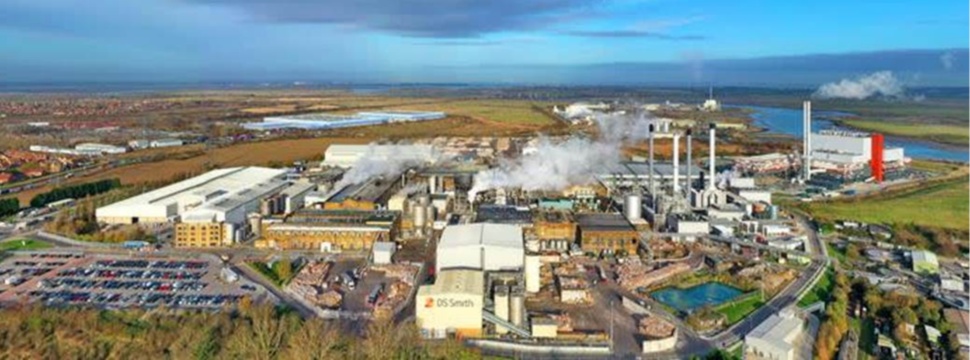DS Smith accelerates carbon reduction plans and commits to adapting to 1.5°C target
News General news
Today we are announcing our ambitious commitment to align our global business activities to a 1.5°C scenario, as set out in the Paris Climate Agreement. The roadmap to 1.5°C has been submitted to the Science Based Targets Initiative (SBTi)* for review.

To achieve this target, we will accelerate the reduction of carbon emissions from our manufacturing facilities and those of our partners and suppliers by committing to reduce Scope 1, 2 and 3 greenhouse gas (GHG) emissions by 46 per cent absolute by 2030 compared to 2019. These targets bring us, a member of the UN Race to Zero initiative, in line with our previous commitment to achieve net zero** emissions by 2050.
Miles Roberts, Group Chief Executive at DS Smith says: "Today's announcement highlights our ambition to reduce our carbon emissions as part of our long-term sustainability focus. This commitment not only ensures that our company leads by example in reducing our carbon footprint, but also ensures that we ask our suppliers and partners to do the same."
"Our company has ambitious growth plans for the coming years and we want to lead the transition to a circular economy. The commitments are a key part of our sustainability strategy "Now. And Future.", through which we aim to have a positive impact on our fellow human beings and our planet now and in the future."
Investing in the future
To meet this commitment, we will consistently invest in our business activities over the next 28 years, for example in future technologies such as biomethane boiler technology. In addition, we will use renewable energy sources such as wind and solar energy as well as power purchase agreements to replace conventional electricity.
Working with our partners
We will work with our strategic suppliers to encourage them to adopt science-based emissions targets by 2027. This intention is based on feedback from stakeholders who express a desire to work with like-minded companies that are committed to science-based climate targets and net-zero emissions alongside the circular economy. As part of this approach, we will work closely with partners, suppliers, customers and policymakers to jointly address climate change through the circular economy.
Net Zero Commitment
The implementation of these commitments is supported by a Net Zero transition plan. This sets out the key strategic actions and milestones that will define our transition to net zero emissions. The plan will be published in summer 2022 and is aligned with our growth strategy. It describes the planned initiatives, prioritising the largest sources of greenhouse gas emissions***.
Andrew Morlet, CEO of the Ellen MacArthur Foundation: "The Foundation's report, Completing the Picture: How the Circular Economy Tackles Climate Change", shows that while switching to renewable energy is critical to tackling climate change, nearly half of global greenhouse gas emissions are due to how we make and use products and food. We need a circular economy focused on preventing waste, recycling products and materials and regenerating nature to tackle emissions and meet the targets set out in the Paris Agreement. Today's announcement shows that our strategic partner DS Smith is committed to ambitious action on both renewable energy and the circular economy."
Wouter van Tol, Head of Government, Community Affairs & Sustainability at DS Smith adds: "As we approach the UN Climate Change Conference in 2021, there has never been a better time for companies to show how they are supporting the fight against global warming. DS Smith is uniquely positioned to support its customers by providing circular solutions. Today's announcement enables us to scale up our contribution."
*The Science Based Targets initiative engages and supports companies in determining by how much and how quickly they must reduce their greenhouse gas emissions.
**The term "net zero" refers to the balance between the amount of greenhouse gases produced and the amount taken out of the atmosphere.
*** DS Smith's Net Zero transition plan takes into account future carbon costs, technology and feedstock availability, and cost projections. It is updated at regular intervals, supported by robust governance processes and regularly communicated to stakeholders.










